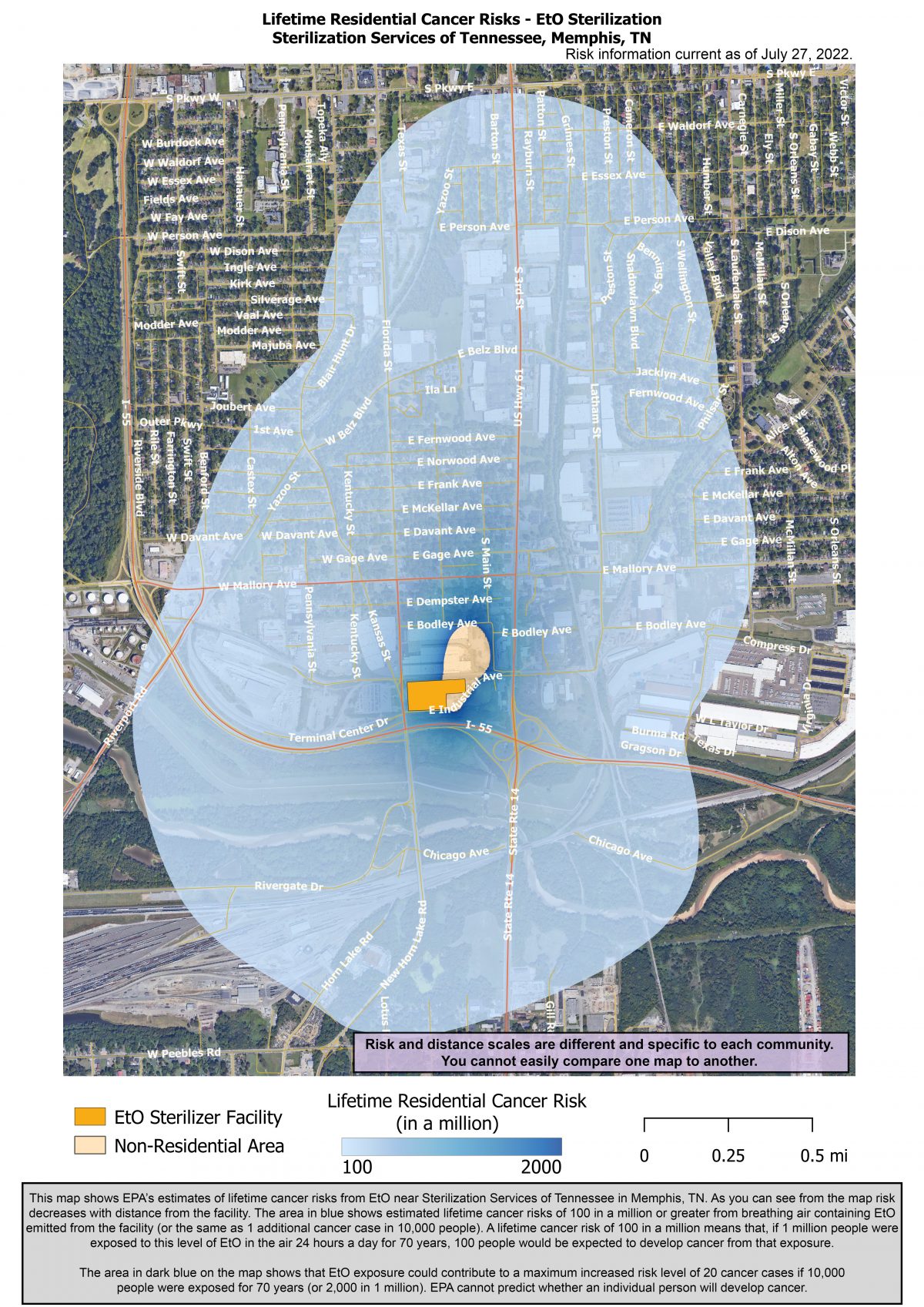The Memphis City Council wants Sterilization Services of Tennessee to start curbing its harmful emissions now, rather than waiting for a mandate from the federal government.
The company, on Florida Street in South Memphis, emits ethylene oxide (EtO), an odorless, colorless gas used to sterilize medical equipment and other materials. EtO is a carcinogen and the Environmental Protection Agency (EPA) has warned that residents around the facility are at a higher risk of getting cancer.
An EPA review of EtO found it it to be 60 times more toxic than previously believed. The agency did not learn the chemical could lead to higher cancer risks around emitting facilities until 2016.
An EPA risk assessment of Sterilization Services published in October found that if 1 million residents around the facility breathed air with EtO all day every day for 70 years, 100 of them would be expected to develop cancer due to the exposure. However, the agency couches the projection, noting it “cannot predict whether an individual person will develop cancer.”
City council member Dr. Jeff Warren said Tuesday most of the company’s EtO emissions are not released through a smokestack. Rather, they are “fugitive emissions,” released through doors and “just the natural operations of the business,” Warren said.
Caroline Freeman, director of the EPA’s Region 4 (which includes Memphis) told council members two weeks the agency was concerned about the situation in South Memphis. As of October, however, the company had not installed new EtO pollution controls and had no plans for new controls, according to the EPA.
However, Freeman told council members the agency is working on new regulations for EtO emissions and hopes to issue a new rule on them this year. But the Clean Air Act gives companies two to three years to comply with new rules, according to council research.
On Tuesday, a council committee unanimously approved a resolution asking the company to start work on the issue soon. The resolution wants Sterilization Services to immediately begin working with the EPA, the state of Tennessee, and the Shelby County Health Department “to halt fugitive emissions, in lieu of waiting for the passage of federal regulation as the health and safety of Memphians continues to be at risk.”
“This particular company has multiple locations across the country,” Warren said Tuesday. “In some of the other locations, they are already moving to initiate activities to limit fugitive emission. What we’re doing here is … asking them to initiate those same interventions that they they’r putting in other sites across the country.”
The resolution also asks for the named government agencies to keep citizens updated with information about the company and its emissions.
Most members of the council’s Parks and Environment Committee signed on as co-sponsors to the resolution. Council member Edmund Ford Sr. got the heart of the matter saying the move was “very important because it puts in the air something we don’t want for our people.”
